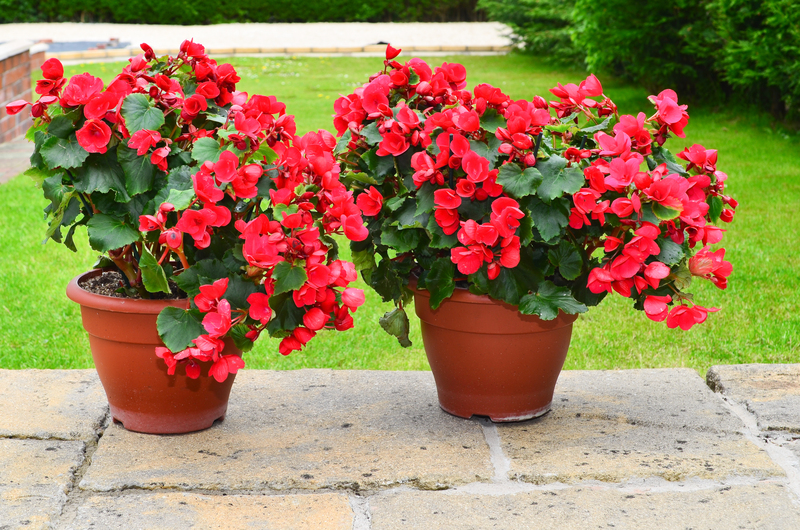Using Compost as a Natural Alternative to Manure in Gardening
Posted on 16/09/2024
Gardening has become a popular hobby for many individuals, with its numerous benefits including providing fresh produce, improving mental health and reducing stress. However, in order to have a successful garden, proper soil nutrition is crucial. While traditional fertilizers like manure have been commonly used for centuries, there is now a growing interest in using compost as an alternative. Compost has been gaining popularity as a natural and sustainable option for enriching soil and promoting healthy plant growth. In this article, we will explore the benefits and drawbacks of using compost over manure in gardening.
What is Compost?
Compost is organic matter that has been decomposed and recycled into fertilizer. This process involves collecting food scraps, yard waste, leaves, grass clippings, and other bio-degradable materials in a compost pile or bin. Over time, these materials break down through microorganisms, creating a nutrient-rich humus that can be mixed into the soil to improve its overall quality.

Nutritional Value
One of the biggest advantages of using compost over manure is its nutritional value. Compost contains a variety of essential nutrients such as nitrogen, phosphorus, and potassium that are vital for plant growth. Unlike manure which may contain varying levels of these nutrients depending on the animal's diet, compost provides a consistent balance of nutrients that can help prevent nutrient deficiencies in plants.
Moreover, compost contains beneficial microorganisms that promote plant growth by improving soil structure and increasing water retention. These microorganisms also help suppress the growth of harmful pathogens and pests in the soil, making it a safer option for organic gardening.
Environmental Benefits
Composting not only benefits your garden but also the environment. By diverting waste from landfills where it produces methane gas (a potent greenhouse gas), composting reduces greenhouse gas emissions. Furthermore, using compost eliminates the need for synthetic fertilizers and pesticides, which can be harmful to the environment. It is a sustainable practice that helps preserve soil health and reduces our carbon footprint.
Easy to Make
Compost is relatively easy to make and requires minimal effort and resources. You can easily create a compost pile in your backyard by using a bin or constructing one with pallets. With proper maintenance, your compost will be ready within 3-6 months depending on the climate and ingredients used. Manure, on the other hand, requires more labor and resources to obtain and transport.
Limitations of Compost
While compost has many advantages, it does have some limitations compared to manure. The process of creating compost takes time and may not be available for immediate use in your garden. Additionally, different materials added to the compost pile may result in varying nutrient levels in the final product. Therefore, it is important to regularly test your compost's nutrient content and monitor its application to achieve optimal results.

Tips for Using Compost in Gardening
If you are considering using compost in your garden, here are a few tips to keep in mind:
1. Use matured compost: Young compost can contain high levels of ammonia which can harm plants. Make sure your compost is mature before using it in your garden.
2. Add compost to existing soil: Mixing compost with existing soil promotes better root growth and improves overall soil quality.
3. Apply during spring or fall: Applying compost during the active growing season of plants helps them absorb nutrients more efficiently.
4. Use as a mulch: Compost can also be used as a mulch layer around plants to prevent weeds, retain moisture, and add nutrients.
Conclusion
In conclusion, while both manure and compost offer benefits for gardening, using compost has several advantages over manure. It provides consistent nutrient content, is environmentally friendly, and can be easily made at home. However, it does have some limitations and requires proper maintenance for optimal results. By using compost as a natural alternative to manure in gardening, you can improve soil health and promote sustainable practices while reaping the benefits of a bountiful garden.






